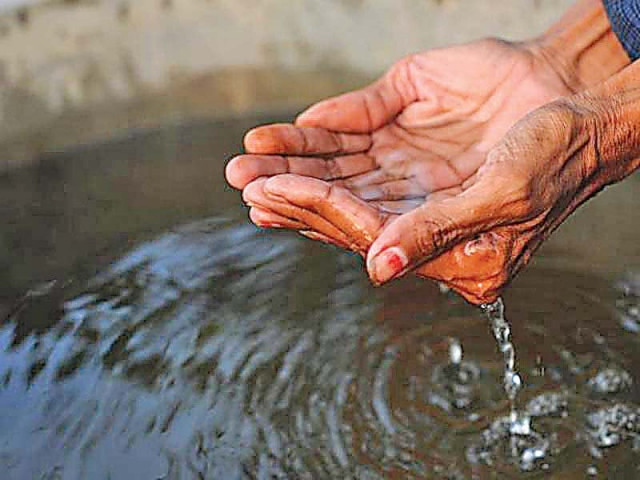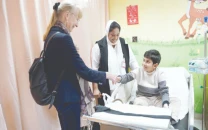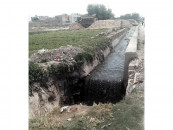Two-day workshop: ‘Global cooperation needed over shared water resources’
Experts stress on raising awareness on issues surrounding transboundary water governance

PHOTO: AFP
WWF-Pakistan Director General Hammad Naqi expressed these views during a two-day workshop which focused on raising awareness and increasing the capacity of civil society organisations on issues related to transboundary water governance.
Organised by World Wide Fund, in collaboration with Centre for Public Policy and Governance of the Forman Christian College, the discussions were global in scope. However, there was a particular focus on the Ravi River.
Taking the Ravi River stretch from Madhopur in India to Lahore as a case study of a transboundary river, the participants of the workshop discussed key challenges and their impact on the agriculture sector as well as urban and marginalised communities.
In the opening session of the workshop, WWF-Pakistan Director General Hammad Naqi highlighted the importance of a domestic, bi and multilateral mechanism to support the many international water cooperation agreements.
Naqi said climatic challenges we being faced on a global level and demanded an increased level of cooperation between countries over shared water resources.
“Such cooperation over transboundary waters will result in benefits reaching well beyond the water sector and open up new opportunities for riparian states to sustainable development and improved livelihoods; water, food and energy security; flood and drought prevention; and a healthy ecosystem,” Naqi said.
CPPG Chairperson Dr Saeed Shafqat said there was a considerable difference between policy narratives of the government and the ground realities in Pakistan.
“Through dialogue, deliberation and research, we aim to enhance a culture of research that feeds into the policy arena because such initiatives can help us move from a belief-based society to a knowledge-based society,” Dr Saeed said.
He said the main purpose of collaborating with WWF-Pakistan was to support research initiatives that can bridge the gap between applied research and policy process. He was of the view that research carried out should align with the realities of the region.
Talking about the importance of river rehabilitation, adviser to Chairperson WAPDA Abdul Khaliq said the restoration of River Ravi should have started 10 years ago by adopting various modern techniques such as rainwater harvesting.
The participants also gave their feedback on how effective governance by water departments can help overcome issues and challenges. Discussions were also held on how water governance demands collaboration and coordination at the local level.
According to the details discussed at the workshop, evidence shows that the morphology of River Ravi was fast changing and the river has shifted (given its gradient slope) towards India in the past years.
It was suggested that both macro development trajectories and micro existential issues need to be seen through the optics of water governance, the optics of cultural heritage of the Ravi and through a redefined understanding of water diplomacy.
Published in The Express Tribune, February 10th, 2017.



















COMMENTS
Comments are moderated and generally will be posted if they are on-topic and not abusive.
For more information, please see our Comments FAQ